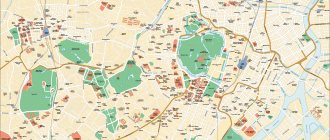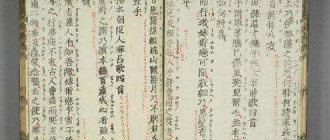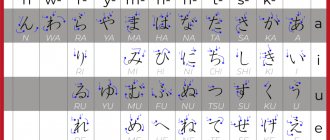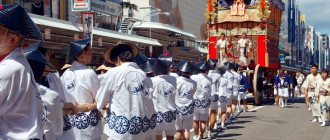Moscow, 07/03/2021, 22:59:34, editorial office of FTimes.ru, author Evgeny Omelchenko.
Japan is the land of the rising sun, which amazes with its traditions and unusual cultural phenomena. This is the birthplace of sushi, anime, samurai and a host of other treasures of world culture. But there is also a fact in Japan that they try not to talk about much and hush it up. We are talking about Japanese prisons, which have received the status of one of the harshest in the world. Why do they have such a reputation?
Prisons in Japan are called "hell holes" and instill fear in prisoners
Prisons in Japan are famous for their order, cleanliness, silence, there is no violence, but even experienced prisoners experience great fear of this place. In a Japanese prison, no one wants to serve their sentence again. Those who were not lucky enough to spend time there in captivity will always remember it as a bad dream.
For many decades now, prisoners in Japanese prisons have been subject to strict rules. The views, habits, gestures, gait, and daily routine of those serving sentences are regulated.
At the same time, they severely punish non-compliance and violation of established standards. Prisons in the Land of the Rising Sun are called “hell holes.” It is especially difficult for foreigners to be here.
As soon as a prisoner enters prison, he receives a set of rules that includes more than 100 points. Those serving time in solitary confinement have to do “dumb” jobs, like leveling foil cupcake stands. When the job is done, the guard enters the cell, crumples all the foil and the prisoner starts working again.
Prisoners must look, move, act, go to the toilet, sit, and use personal belongings only as written in the prison rules. The slightest deviation and disobedience leads to a stay in solitary confinement, where the prisoner must sit in one position for 10 hours. The person serving his sentence sits with his legs crossed and looks straight ahead at the wall. And no one cares if he served his legs.
Water treatments in Japanese prisons are allowed only twice a week. In the cold season, their duration is 15 minutes, and in the summer - about half an hour. In winter, the heating does not work, and in the heat there is no talk of air conditioning.
It is simply dangerous for prisoners to get sick in the “hell hole”, because here you can wait for a doctor for several days, and then only after filling out a form. Such harshness is explained by the fact that only after going through torment and suffering can a prisoner cleanse himself, change and become a normal member of society again.
Prisoners wake up early in the morning - at 6:40, and from 8:00 to 17:00 those serving their sentences work. Conversations while working are prohibited, and you cannot get up without permission. During a short lunch and a short time in the evening you can chat with other prisoners. Before lunch is served, those serving their sentences close their eyes and wait for the command to start eating.
In their free time in the evening, prisoners are allowed to watch a little TV or read a book, and at 21:00 everyone goes to bed. Moreover, you have to sleep so that your hands and head are visible to the guard, otherwise the person will be woken up.
In Japan, they treat criminals very harshly and believe that only harsh punishments can reduce crime in the country.
Comment
Tell me, what do you think about this?
Beginning of reforms
Prisoners in prison. / Photo: www.blogspot.com
However, in the Land of the Rising Sun, the first attempt to reform the punishment system has already been made. The first private prison opened here in 2008. The company that manages it receives a certain payment from the state for the maintenance of prisoners. The rules here are much more relaxed than in a state prison, and the living conditions are more comfortable. Only those prisoners whose crimes are very minor can get here.
The Kingdom of the Netherlands, with its free views on many aspects that are illegal in other countries, would seem to be choked with crime. But in reality everything is completely different: Holland is forced to close prisons,
because they are empty.
Prison and life behind bars
Strange as it may sound, Japan ranks one of the last in the world in terms of the number of prisoners - only 40 people per 100 thousand population. For comparison: in Russia today this figure is 585. It is difficult to say what is the reason for this - perhaps the way of life that has developed over centuries in accordance with the Bushido code of honor, or perhaps fear of prison, the content of which is sharply different from penitentiary systems, for example, European countries.
Where are we sitting?
Currently, in the Land of the Rising Sun, the Ministry of Justice runs 67 prisons for adults, 8 for juvenile offenders, 40 “houses for awaiting trial” (analogues of our pre-trial detention centers), where 88 thousand prisoners are kept.
There are two main prisons in the capital: Fuchu and Kosuga. Both are located on the outskirts of Tokyo. The first, one might say, is located in a park with a total area of 23 hectares. Behind the high walls, painted pink, there are buildings directly housing 3 thousand prisoners, a dormitory for employees, workshops and an administrative building, which houses 7 departments: general, security, organization of production, education and life, classification and rehabilitation, work with foreigners, medical assistance and maintaining contacts with families. It houses persons sentenced to a term of 8 to 25 years, repeat offenders, as well as foreign citizens, with the exception of American military personnel from military bases, who, if they commit a crime, are sent to their homeland for further trial.
Kosuga Prison is located in the north of the capital in a suburban area where highways and railroads intersect. Its gray buildings, including houses for employees, are located behind two fences - a decorative brick one with openwork bars and a high concrete one. At the entrance there is a small cafe where visitors waiting for dates can pass the time.
Two years ago, another brand new prison opened in Yamaguchi Prefecture, designed to house prisoners who had committed minor crimes - 500 men and 500 women. It was built with funds from investors and is managed by a private company that provides security, maintenance and training for its wards, naturally receiving a handsome fee from the state - 52 billion yen per year ($430 million).
In appearance, this prison is more reminiscent of a boarding house: instead of a concrete wall topped with barbed wire, there is a fence made of impact-resistant glass, which is also inserted into the windows. The cells are single, with beds instead of bunks, a bathroom and a TV. The doors are not metal, but wooden. Prisoners can move around the prison freely, with their movements controlled using a smart card. The prisoner's passage into a particular room is recorded, be it a dining room, a library or a visiting room.
How are we sitting?
But this paradise is not for everyone, since in other prisons prisoners are kept in draconian conditions. Japanese jailers act in accordance with a philosophical postulate, which can be stated as follows: “Deprivation of liberty is intended to instill in the prisoner a sense of shame, since crime is tantamount to the loss of moral sense, which justifies a kind of purification through suffering.” And as a result, the action of “a rehabilitation system based on strict discipline and labor education, awareness of one’s role in the team, helping to become a full-fledged member of society.” This ideology was reflected in the “Law on Prisons of 1908”, and only in 2006 it was replaced by a new code “On places of detention and treatment of prisoners”. It provides for the establishment of a prison inspectorate, increasing prisoners' ability to communicate with the outside world, and training correctional officers.
And now about the conditions of detention of prisoners. Judge for yourself. Wake up at 6.45. 15 minutes to visit the toilet, inspect the cameras to prevent an impending escape, roll call, half an hour for breakfast. Changing from a green uniform to a robe, during which the physical condition of prisoners is identified and they are sent to the industrial zone, where they work from 8 to 17 hours with two breaks of 15 minutes and a half-hour lunch. Prison production workshops, where you can earn from 10 to 100 US dollars a day, are very diverse. These are auto repair and welding shops, leather and ceramic workshops.
After the end of the working day - dinner and free time. For example, you can visit a library or a hairdresser, where men are offered several types of haircuts, or watch TV or a video tape borrowed from the library in the common room.
At 21:00 lights out and the lights in the cells turn off. It is prohibited to sit or lie on the bunk until this time. Showers can only be taken twice a week; the rest of the time, only wiping is allowed. Half-hour walks in the courtyard - two to three times a week by decision of the administration and only in case of good weather. The inhabitants of the prisons can also take advantage of medical assistance - infirmaries with surgeons, therapists and dentists are at their service.
But if the cells of ordinary Japanese offenders have only washbasins, then foreigners serving sentences in Japanese prisons enjoy certain privileges. They are kept in solitary confinement, where there is a bathroom, a normal bed, a TV and even... a brush for cleaning the room. They can, however, at their own expense, buy newspapers and books in their native language or receive them from the embassy. Japanese language courses are available to them so that they can better understand the traditions and customs of their temporarily “hosted” country. If they write letters to their relatives in their own language, then there are mandatory rules - copies of the messages are sent to the embassy so that an accurate translation of the text is given within a week, after which the letter or postcard is sent to the addressee. The Japanese, without proof, have the right to send only letters to the Ministry of Justice.
One-two - take a wider step!
It would seem like a perfect correction system. But it also has a downside. The already mentioned strict discipline. “Ichi-ni, iti-ni,” this “one-two” command is heard several times a day in Japanese prisons. These are the prisoners, slapping their sandals, on their way to work, and each of them looks sternly at the back of the head of the previous one. Before this, during the verification process, they had already undergone a procedure called “kankan odori” - “cancan dance”, during which prisoners, stripped naked, must raise their arms and legs in a certain order for a personal search, stick out their tongues and spread their buttocks. If you make a mistake in the sequence of body movements, you will start all the exercises again. This procedure will be repeated when they return from work.
It is forbidden to talk in prison, except during free time and a short lunch break. You must address the supervisor politely: “Mr. Chief”; you must also answer politely, starting with the phrase: “I beg your pardon.” In this case, you only need to look straight ahead. Violation of this ritual will result in punishment.
Two years ago, the director of the Nagoya prison and five guards were convicted following a complaint from one of the prisoners. It reported that during the general formation of prisoners before going to work, some noise was heard in the adjacent room. All the prisoners involuntarily turned their heads. As a result, the poor fellow became extreme and he was put in a punishment cell. There the prisoner was thrown to the floor. Four guards held the offender by the legs and arms, and the fifth kicked him in the ribs. As a result of the execution, the inmate ended up in the hospital, and then, when he was brought to consciousness, he was sent back to the punishment cell. The maximum period of stay in a punishment cell is 60 days. Almost all this time, violators, surrounded by a belt with shackles, must squat, staring at one point. There are no windows in the punishment cells, so the sense of time is lost.
American Kevin Mara, who was sentenced to 5 years in prison for marijuana smuggling, was subjected to a similar execution. Upon entering the prison, the official quickly explained his rights and responsibilities, half of which the drug dealer simply did not understand. As a result, he almost immediately found himself in a punishment cell. He had to sit there more than once. For example, for opening his eyes early during lunch (according to the rules, prisoners must keep them closed until the command to eat), then for daring to wet his hair, although he only had the right to wash his face, then for daring While working, wipe sweat from your face with a towel.
And finally, about what inmates of Japanese prisons eat. Their staple food is ramen, a bowl of noodles in chicken or meat broth, or a variation on tempura, a seafood dish. And the amount of calories necessary for normal life is provided by porridges - rice and barley. On holidays, pork dishes and baked goods appear on the menu, since many provincial prisons operate their own bakeries. Prisoners eat meals in their cells except on weekdays, when they eat in the canteen.
Based on materials from the newspaper “Behind Bars” (No. 4, 2010)











